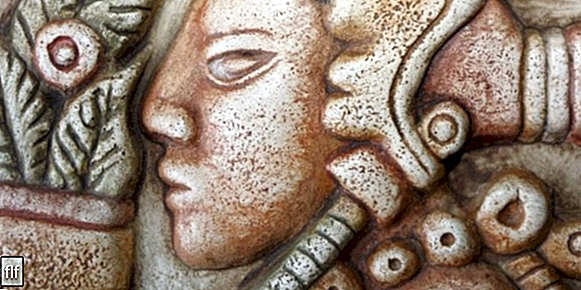We explain what a god is, his role in various cultures and his characteristics. Also, differences between monotheism and polytheism.

What is a god?
A god is a concept mystical and/or religious, consisting of a supreme entity to which supernatural powers and various roles in the functioning of the world are attributed. It is one of the oldest concepts of human civilization, fundamental in the emergence of the first religions and mythologies.
In broad terms, it is called god or deity to a supernatural, eternal entity, endowed with control over some (or all) aspects of nature, and to which human beings can resort in situations of urgency, suffering or gratitude, through ritual practices.
Depending on religion and culture, the gods can be many and very diverse (polytheism) or a single and absolute one (monotheism). In the latter case, he is usually credited with the creation of the universe, of life and especially of animals. Humans, to whom he would also have granted the gift of reason and certain moral or existential codes through which to guide themselves in existence.
The word god comes from the Latin deus, and this in turn from the Indo-European root dyeu-, linked with daytime brightness or daylight; This is due to the fact that the vast majority of ancient religions worshiped the sun and the sky, often attributing to it the role of the fertilizing father of the earth or of being responsible for keeping the cosmic order going.
Thus, the ancient egyptians they called the sun Ra; The ancient Greeks headed their pantheon with the father god Zeus (dyeus), owner of lightning and the skies; and the later Romans did the same with Jupiter (dyeu-piter) whom he evoked as “father” (father).
The gods always played a protective and guiding role in the formation of the societies human beings, and their wills were understood, interpreted and communicated by priests, shamans or other types of spiritual leaders, many of whom at the same time occupied the leadership political.
Although historically polytheisms, that is, religions with many gods, were the first and most common, monotheisms played a vital role in the religious composition of the world. In general, one-god religions were much less tolerant of alien beliefs, seeing his deity as the true one and alien deities as lies, deviations, or misunderstandings.
Therefore, the monotheisms actively sought the conversion of others to their creed, which allowed the cultural unification of entire regions and established a common ideology among people of all ages. Languages, ethnicities Y nationalities different. This, of course, also had a gigantic historical cost in blood and war. The three great monotheisms were and still are: the Judaism, the Christianity and the Islam.
In the modern world, especially in the West, considerations around the existence or absence of god were central and controversial. Federico Nietzsche's phrase that "God is dead" is well known, meaning that in the mode of thinking of modern human beings, the idea of an all-powerful supernatural entity went from being a public and central issue in society, to be something rather intimate and subjective.
According to this theory, everyone can believe in the god or gods they like and profess that faith in their own way.However, the different churches and organized religions continue to exist and play an important role in the moral and spiritual guidance of their membership.
People who do not believe in any god are known as atheists; while those who believe in god in their own way, without practicing any specific religion, or simply think that the existence of god is something that transcends human understanding, they are called agnostics.
characteristics of a god
It is very difficult to establish a universal pattern of characteristics for all the gods in which the humanity believe or have believed. However, broadly speaking we can talk about:
- A god is an eternal or near-eternal entity, existing on a higher plane than humanity. In some traditions they are represented anthropomorphically, that is, in human form, as men and women endowed with certain features and certain implements. Thus, the greek god Apollo was represented as a young man carrying a bow and arrow or a lyre, while the Hindu god Ganesha has a human body with four arms and an elephant's head; For its part, Islam prohibits any kind of representation of God.
- The gods are usually responsible, directly or indirectly, for the creation of the universe and especially of the human species. The latter would have been assigned some kind of mission or meaning, generally related to divine veneration or the practice of a spiritual code, that is, the gods would have created humanity to guide it or to be venerated by it. That is why the gods often occupy a paternal or maternal role, even generating offspring among human beings, as was the case with the Greek heroes.
- In polytheisms, the gods usually share the domain of the earth, reigning over the skies, seas, mountains, or over the world of the dead.Each god would have absolute dominion over their specific realm, and often equivalents in the natural world (as sacred animals) or in the emotional world of humans (as emotions associated with them, or specific protective roles: the Greek god Hermes, for example , protected messengers, thieves and rogues). Among themselves, the gods could be at peace or at war.
- The gods rarely show themselves to mortal eyes, and when they do, it is usually through symbols, riddles, or dreams, so their will often requires interpretation by a priest or spirit guide. Said will can be mysterious and capricious, or open and frontal, depending on the cult and also on the god considered. Thus, for example, there would be protective gods, cruel gods, compassionate gods, major gods and minor gods, or different aspects of one and the same god, who can be terrible and loving at the same time, as in the case of the Judeo-Christian god.
